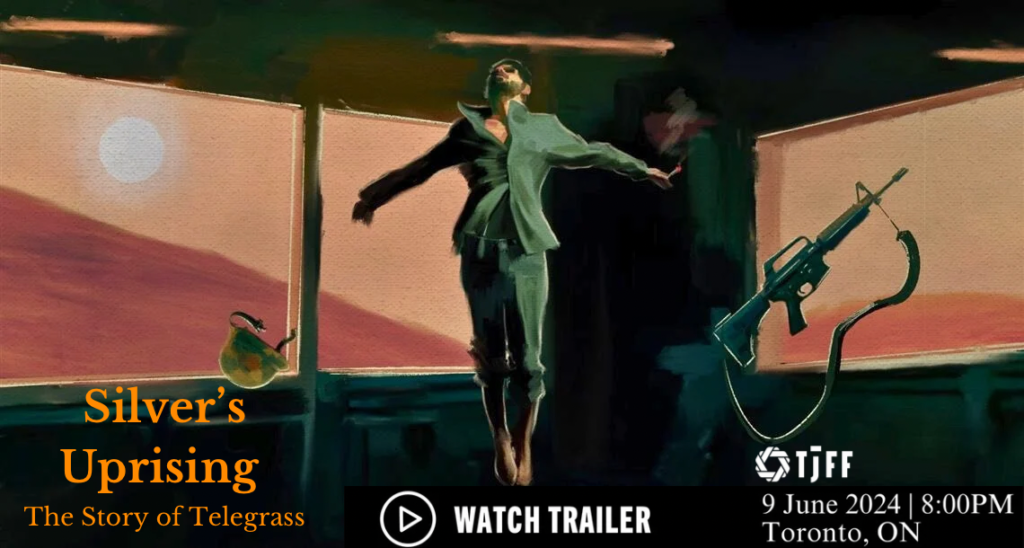I haven’t always felt a connection to Israel, or what we call “Ahavat Israel.” It took a couple of decades to trace the mishagas of my childhood to the generational trauma that explained why it wasn’t my fault before I could drop a lot of misplaced resentment, feel the love of my people, and the beauty of Israeli culture. It also helped to smoke a lot of weed, and I still feel a sense of belonging and a great deal of Jewish pride about the fact that Jews have always loved cannabis (Heb., kaneh bosem); a plant that figures quite prominently as an herb with healing powers in both the Torah and Talmud (Baruch Hashem!).
For the same reason, I’ve always flexed about the fact that Israel has been the global leader in cannabis research ever since Dr. Raphael Mechoulam (Z”L) discovered THC and cannabinoid therapy in 1964. Thus, I was shocked when I watched the captivating documentary Silver’s Uprising by Israeli director Dan Shadur, who also wrote and produced it with Ido Mizrahy, and learned about the actual cost of Israel’s cannabis policy that accepts its medicinal value while—until quite recently—criminalizing its recreational use.
Although I approached the film as a history lesson in Israel’s own “War Against Drugs,” Silver’s Uprising precludes such simplistic comparisons by illustrating the irreducibly unique experience of living in a nation of Holocaust survivors, soldiers, and veterans where just about everyone suffers from trauma and Jewish history.
The film is structured like a documentary thriller that begins when the protagonist—the Israeli cannabis activist Amos Dov Silver—is arrested in Ukraine in 2019 on charges of running an online crime syndicate for creating the wildly popular cannabis delivery app “Telegrass” that transformed Israel’s black market. At the same time, as the story unfolds in Silver’s own words to explain why he was willing to risk everything for cannabis, the film offers a poignant reflection on post-traumatic stress disorder that captures what it feels like to live with PTSD better than any movie or show this Jewish woman with complex trauma has ever seen.
Specifically, the film captures what it feels like when your mind is held hostage all day by anger and terror and fear, and why this erodes the desire and ability to live. Silver’s reflections on the power of cannabis to quiet the noise and restore the self will be familiar to anyone who has self-medicated for PTSD. As I watched the film, mesmerized by the stunning hand-painted style animation that helps illustrate Silver’s journey to find himself and some peace-of-mind, I felt guilty for not having heard of him and his plight before he testified to Shadur, from prison, to defend himself in the court of public opinion.
Silver’s Uprising provides important context for why Israel consumes more cannabis than any other nation (approx. 27% of the adult population). It also reveals that the Jewish love of cannabis is bound up with trauma, recovery and survival. Perhaps most importantly, the film suggests that in this nation of survivors, no one consumes cannabis on a strictly “recreational” basis and the failure to see this became another source of trauma in the most traumatized nation on earth.
I guarantee you will also be moved and transfixed by this exceptional, timely documentary about Amos Dov Silver⏤the “Green Messiah”⏤who, with the creation of Telegrass, performed what may be the most successful, far-reaching act of tikkun olam by a single person.
Silver’s Uprising will have its Canadian Premiere on the closing night of the Toronto Jewish Film Festival, on June 9, 2024 at 8:00pm at the Hot Docs Ted Rogers Cinema. Tickets can be purchased on the website.
In order to stay connected with the Canna-Jewish community, sign up to receive The Canna Jewish News delivered right to your inbox. To learn more about the role of cannabis in the Jewish tradition, check out our new online course The Jewish Relation to Cannabis, sold with the Yeshiva Subscription to Cannabis Jew Magazine.









